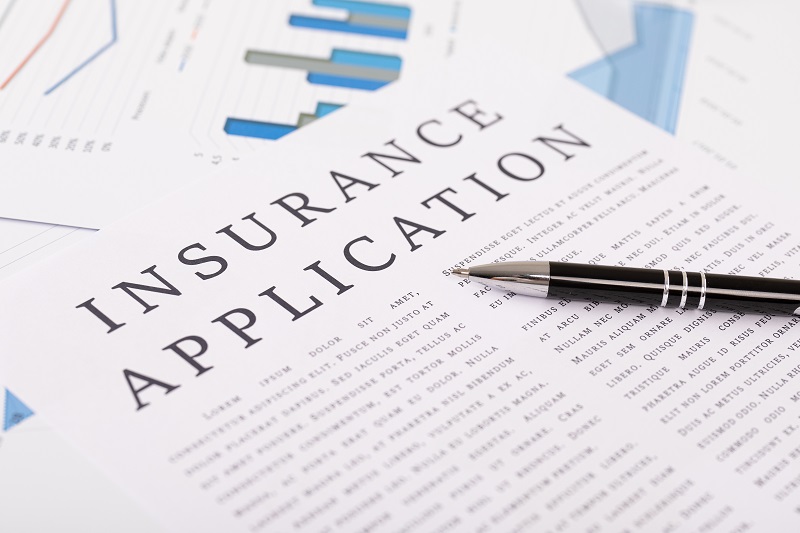If you’re thinking about starting a credit repair business in New Hampshire, there are certain laws and regulations that you need to be aware of. In this article, we’ll explore the key legal requirements you need to know before launching your credit repair business in the New Hampshire State.
Create a Business Plan

Outline your goals, target market, services, pricing, and marketing strategies. This plan will help you stay organized and focused.
Conduct Market Research:
Conduct thorough research on the credit repair industry in New Hampshire. This includes identifying your target market, competitors, and potential challenges. Look for opportunities to differentiate your services and build a unique value proposition.
Define Your Services:
Determine the types of credit repair services you will offer, such as credit counseling, credit score monitoring, dispute resolution, or debt consolidation. Be sure to also identify any legal and regulatory requirements for providing credit repair services in New Hampshire.
Develop a Marketing Strategy:
Identify how you will reach your target audience, what channels you will use, and what message you will communicate. Consider creating a website, social media profiles, and other marketing materials to promote your business.
Create a Financial Plan:
Develop a comprehensive financial plan that includes start-up costs, projected revenue, and expenses. Determine how much money you will need to invest in your business and how long it will take to break even.
Build Your Team:
Determine what roles you will need to fill and whether you will hire employees or contractors. Consider any training or certifications that your team will need to provide high-quality services.
Develop Operations and Processes:
Outline the processes and procedures for running your credit repair business, including client intake, credit analysis, dispute resolution, and reporting. Develop a system for tracking progress and reporting results to clients.
Monitor Your Progress:
Continuously monitor your progress and make adjustments as needed. This includes tracking revenue and expenses, analyzing customer feedback, and adjusting your marketing strategy as necessary.
Choose a Business Name

Select a unique and memorable name for your credit repair business. Make sure it’s not already in use by checking the New Hampshire Secretary of State’s business name database.
Keep it Simple and Memorable:
Choose a name that is easy to remember and easy to spell. Avoid using complex words or abbreviations that may confuse or deter potential customers.
Reflect Your Services:
Your business name should reflect the credit repair services you offer. Consider using keywords related to credit repair such as “credit fix” or “credit recovery” in your business name.
Consider Your Target Market:
Think about your target market and what would appeal to them. For example, if you’re targeting millennials, you may want to choose a name that’s trendy and reflects a modern approach to credit repair.
Check for Availability:
Before finalizing your business name, make sure it’s available for use in New Hampshire. Check with the New Hampshire Secretary of State to see if the name is already registered.
Research Competitors:
Check out the names of other credit repair businesses in New Hampshire and make sure your business name stands out from the crowd. Avoid using a name that is too similar to an existing business, as this can lead to confusion among customers.
Get Feedback:
Once you have a few potential business names, get feedback from friends, family, and potential customers. Ask for their opinions and make sure the name resonates with them.
Register Your Business

Register your credit repair business as a legal entity with the New Hampshire Secretary of State. You may choose from various business structures, such as a sole proprietorship, partnership, limited liability company (LLC), or corporation.
To register your credit repair business as a legal entity with the New Hampshire Secretary of State, you need to follow these steps:
Visit the New Hampshire Secretary of State's Website:
Go to the official website for the New Hampshire Secretary of State.
Navigate to the Corporation Division:
On the website, find the “Divisions” tab in the main menu, and then click on “Corporation.”
Choose Your Business Structure:
Decide on the type of legal entity you want to form, such as a limited liability company (LLC), corporation, or partnership. Each structure has different requirements and forms to complete.
Register Your Business Name:
If you haven’t already, check the availability of your desired business name using the “Search for a Business Name” feature on the Corporation Division page. If the name is available, you can reserve it or proceed with registration.
Complete the Required Forms:
Download and fill out the appropriate forms for the business structure you’ve chosen. For example, if you’re forming an LLC, you’ll need to complete the “Articles of Organization” form.
File the Forms and Pay the Fees:
Submit the completed forms to the New Hampshire Secretary of State’s office, along with the required filing fees. You can file online, by mail, or in person. The fees and submission methods vary depending on the business structure you’ve chosen.
Wait for Confirmation:
After your forms and fees are submitted, the New Hampshire Secretary of State will review your submission. If everything is in order, they will approve your registration and send you confirmation.
Remember to consult with an attorney or other legal professional to ensure that you’re in compliance with all state and federal regulations when starting your credit repair business in New Hampshire.
Obtain an Employer Identification Number (EIN)

Apply for an EIN from the Internal Revenue Service (IRS). This number is required for tax purposes and to open a business bank account.
Determine Eligibility:
The EIN is primarily issued to businesses, but it can also be issued to individuals who are sole proprietors, estates, non-profit organizations, partnerships, government agencies, and more. Make sure your business or organization is eligible for an EIN before you apply.
Gather Necessary Information:
You will need to provide some basic information about your business or organization, including its legal name, business address, and the name and social security number or individual taxpayer identification number of the responsible party.
Decide on the Application Method:
There are several ways to apply for an EIN. You can apply online through the IRS website, by mail, fax, or phone.
Apply for the EIN:
To apply online, go to the IRS website and click on “Apply for an EIN Online.” Follow the prompts to enter your information and submit the application. If you prefer to apply by mail, fax, or phone, you can download and complete Form SS-4 from the IRS website and submit it using the appropriate method.
Wait for Confirmation:
Once you submit your application, the IRS will review it and issue an EIN if it is approved. You will receive a confirmation letter with your EIN in the mail within a few weeks. If you applied online, you can receive your EIN immediately after the application is processed.
Applying for an EIN is a relatively simple process, but it’s important to make sure you have all the necessary information and to choose the application method that works best for you.
Obtain Required Licenses and Permits

Credit repair businesses are regulated by both federal and state laws. In New Hampshire, you may be required to obtain a license or permit to operate. Check with the New Hampshire Banking Department for specific licensing requirements.
Here are some of the licenses and permits that may be required:
Business License:
All businesses in New Hampshire are required to obtain a business license from the city or town where they operate. Check with your local government to find out what the requirements are.
State Registration:
In New Hampshire, credit repair businesses are not required to register with the state.
Federal Registration:
Credit repair businesses that operate in multiple states may be required to register with the Federal Trade Commission (FTC). The FTC oversees the credit repair industry and requires businesses to comply with the Credit Repair Organizations Act (CROA).
Bond:
Credit repair businesses in New Hampshire may be required to post a bond with the state. The bond amount varies depending on the services offered and the number of clients served.
Insurance:
Credit repair businesses are not required to carry insurance in New Hampshire, but it is highly recommended to protect your business from liability.
Certification:
While not required, certification from a recognized credit repair organization such as the National Association of Credit Services Organizations (NACSO) can help establish credibility and trust with clients.
Comply with the Credit Repair Organizations Act (CROA)

The CROA is a federal law that governs credit repair businesses. Ensure that your business practices are in compliance with the CROA by providing written contracts, avoiding false claims, and not charging clients before services are completed.
Under the CROA, credit repair organizations must provide consumers with a written contract that outlines the services to be performed, the terms of payment, and the timeframe for completing the services. The contract must also inform consumers of their right to cancel the contract within three business days.
Other federal laws related to credit repair include:
Fair Credit Reporting Act (FCRA):
The FCRA regulates how credit reporting agencies collect and use consumer credit information. It also gives consumers the right to dispute inaccurate information on their credit reports.
Equal Credit Opportunity Act (ECOA):
The ECOA prohibits discrimination in lending based on factors such as race, color, religion, national origin, sex, marital status, or age.
Truth in Lending Act (TILA):
The TILA requires lenders to disclose the terms and conditions of a loan, including the interest rate, fees, and any penalties for late payment.
Fair Debt Collection Practices Act (FDCPA):
The FDCPA regulates how debt collectors can communicate with consumers and prohibits certain practices such as harassment, false statements, and unfair debt collection practices.
Some of the key state requirements include:
Licensing:
In New Hampshire, credit repair businesses are not required to obtain a specific license, but they must comply with all applicable business licensing requirements at the local level.
Bonding:
Credit repair businesses in New Hampshire may be required to post a bond with the state. The bond amount varies depending on the services offered and the number of clients served.
Contract Requirements:
Credit repair businesses in New Hampshire are required to provide consumers with a written contract that outlines the services to be performed, the terms of payment, and the timeframe for completing the services. The contract must also inform consumers of their right to cancel the contract within three business days.
Fee Limits:
Credit repair businesses in New Hampshire are prohibited from charging fees in advance of providing services, and they may only charge fees for services that have been completed. The total fees charged cannot exceed 10% of the total amount of debt owed by the consumer.
Prohibited Practices:
Credit repair businesses in New Hampshire are prohibited from making false or misleading statements, engaging in unfair practices, or otherwise deceiving consumers.
N.H. Rev. Stat. § 359 D:1 et seq. is a New Hampshire law that governs debt management services, including credit counseling and debt settlement. The law sets forth certain requirements that debt management services providers must meet in order to operate legally in the state of New Hampshire.
Under N.H. Rev. Stat. § 359 D:1 et seq., debt management services providers must register with the New Hampshire Banking Department and meet certain requirements related to disclosure, fees, and consumer protection.
The law requires debt management services providers to provide consumers with a written contract that outlines the services to be performed, the fees to be charged, and the timeframe for completing the services.The contract must also inform consumers of their right to cancel the contract within three business days.
The law also limits the fees that debt management services providers can charge, requires them to maintain separate trust accounts for client funds, and prohibits certain unfair or deceptive practices.
Debt management services providers are required to comply with all applicable state and federal laws and regulations related to debt management services.
While N.H. Rev. Stat. § 359 D:1 et seq. specifically governs debt management services providers, credit repair businesses in New Hampshire may also be subject to these regulations if they offer debt management services as part of their credit repair services.
It’s recommended to consult with an attorney or a business consultant who is familiar with the credit repair industry in New Hampshire to ensure that your business is in compliance with all relevant laws and regulations.
A surety bond is a three-party agreement that legally binds your credit repair company (who needs the bond), the state (who requires the bond), and a surety company that sells the bond. If you fail to perform or cause consumers harm, the bond will cover the resulting damages or losses.
The required bond amount is equal to 5% of the total amount of credit services fees charged by the credit repair company. However, the bond should be no less than $5,000 or more than $25,000. Additionally, the bond amount must be adjusted once a year.
Open a Business Bank Account

Set up a separate bank account for your credit repair business to keep your personal and business finances separate.
Here are the steps to follow:
Choose a Bank:
Research banks in your area that offer business accounts and compare the fees, services, and account features to find the best fit for your business needs.
Gather Required Documents:
To open a business bank account in New Hampshire, you will need to provide the following documents: business registration documents, Employer Identification Number (EIN) from the IRS, and a valid government-issued ID for the business owner.
Schedule an Appointment:
Contact the bank and schedule an appointment to open a business bank account. Make sure to bring all the required documents to the appointment.
Complete the Application:
At the appointment, you will need to fill out an application for a business bank account. Provide the required information and sign all necessary documents.
Fund the Account:
Once your application is approved, fund your business bank account with the required minimum deposit. The amount may vary depending on the bank and type of account you choose.
Set Up Online Banking:
Set up online banking and mobile banking to manage your business bank account conveniently.
Obtain Business Insurance

Consider obtaining liability insurance to protect your business from potential lawsuits.
New Hampshire does not require credit repair businesses to carry specific types of insurance. However, it’s highly recommended that credit repair businesses in New Hampshire carry insurance to protect against financial losses and legal claims. Here are some types of insurance that credit repair businesses may want to consider:
General Liability Insurance:
General liability insurance provides coverage for bodily injury, property damage, and advertising injury claims. This type of insurance can help protect your business from legal claims related to accidents, injuries, or property damage caused by your business operations.
Professional Liability Insurance:
Professional liability insurance (also known as errors and omissions insurance) provides coverage for claims arising from professional services or advice provided by your business. This type of insurance can help protect your business from legal claims related to errors, omissions, or negligence in providing credit repair services.
Cyber Liability Insurance:
Cyber liability insurance provides coverage for losses or damages resulting from data breaches, cyber-attacks, or other cyber risks. This type of insurance can help protect your business from financial losses, legal claims, and damage to your reputation due to cyber incidents.
Business Owner's Policy:
A business owner’s policy (BOP) combines general liability insurance and property insurance in a single policy. This type of insurance can help protect your business from property damage, theft, and legal claims related to accidents or injuries caused by your business operations.
Develop a Website and Marketing Materials

Create a professional website, business cards, and other marketing materials to promote your credit repair business.
Here are some tips to help you create effective website and marketing materials:
Define Your Brand:
Develop a clear and consistent brand image that reflects your credit repair services and appeals to your target audience. This includes choosing a color scheme, font, and logo that represent your business.
Develop Your Content:
Create informative and engaging content for your website and marketing materials that provides value to your potential customers. This includes describing your services, explaining your process, and sharing testimonials from satisfied clients.
Hire a Professional:
Consider hiring a professional website designer or marketing agency to create a custom website and marketing materials that represent your brand and effectively communicate your message.
Make it Mobile-Friendly:
Ensure that your website is optimized for mobile devices to make it easy for potential customers to access your site on their smartphones or tablets.
Optimize for Search Engines:
Use search engine optimization (SEO) strategies to improve your website’s visibility and ranking in search engine results pages (SERPs). This includes using relevant keywords, meta descriptions, and alt tags.
Use Social Media:
Leverage social media platforms such as Facebook, Twitter, and LinkedIn to promote your business and engage with potential customers.
Measure Your Results:
Use web analytics tools to track your website’s performance and measure the effectiveness of your marketing campaigns. This includes monitoring traffic, conversions, and engagement metrics.
Network and Build Relationships

Join local business organizations, attend networking events, and establish relationships with professionals in related industries (e.g., mortgage brokers, real estate agents, and financial advisors).
Here are some tips to help you network effectively:
Join Industry Groups:
Join industry groups such as the National Association of Credit Services Organizations (NACSO) or the Credit Repair Organizations Act Coalition (CROA) to connect with other professionals in the credit repair industry. Attend industry conferences, events, and webinars to meet other professionals and learn about industry trends and best practices.
Attend Local Business Events:
Attend local business events such as chamber of commerce meetings, networking events, and business expos to meet other business owners and professionals in your area. Bring business cards and be prepared to introduce yourself and talk about your services.
Connect with Referral Sources:
Build relationships with referral sources such as real estate agents, mortgage brokers, and financial advisors who may refer clients to your business. Meet with them to discuss how you can help their clients improve their credit scores and achieve their financial goals.
Leverage Social Media:
Use social media platforms such as LinkedIn and Facebook to connect with other professionals in your industry and share content about your business. Engage with potential customers and referral sources by commenting on their posts and sharing relevant content.
Provide Value:
Build relationships by providing value to others. Offer to speak at local events, write guest blog posts, or share your expertise in online forums. By providing valuable information and insights, you can establish yourself as a trusted authority in the credit repair industry.
Stay Up-To-Date on Industry Regulations
Regularly review federal and state laws related to credit repair to ensure your business remains compliant.
Here are some ways to stay informed about industry regulations:
Consult with a Lawyer:
Consult with a lawyer who is familiar with the credit repair industry in New Hampshire to ensure that your business is in compliance with all relevant laws and regulations. A lawyer can help you understand the regulations and provide guidance on how to comply with them.
Check Government Websites:
Check the websites of government agencies such as the Federal Trade Commission (FTC), the Consumer Financial Protection Bureau (CFPB), and the New Hampshire Department of Justice to stay informed about changes to regulations and guidelines.
Join Industry Associations:
Join industry associations such as the National Association of Credit Services Organizations (NACSO) or the Credit Repair Organizations Act Coalition (CROA) to stay informed about industry news, updates, and best practices.
Attend Conferences and Seminars:
Attend industry conferences and seminars to learn about industry trends and regulatory changes. This can also be a great opportunity to network with other professionals in the credit repair industry.
Read Industry Publications:
Read industry publications such as Credit Repair Cloud, Credit Repair Business News, and Credit Repair Magazine to stay informed about industry news and updates.
Ready to start your credit repair business in New Hampshire?
Make sure you are informed and compliant with the latest state laws.
Click now to learn more.
Now that you are aware of the laws and regulations governing credit repair businesses in New Hampshire, you can confidently launch your own venture and make a positive impact on individuals looking to improve their credit standing.
Bonus: Now that you have read this article, why not take your new skill and start your own credit business helping others? We have free training that can help you do just that.

